
Beginner's Guide to Becoming a Visual Effects (VFX) Artist
2020 Update! - This free guide explains everything you need to know about becoming a visual effects artist for blockbuster films, television and more.

2020 Update! - This free guide explains everything you need to know about becoming a visual effects artist for blockbuster films, television and more.
This guide is for absolute beginners who are trying to find a career that compliments their passion for film, technology, design, coding and digital art. You are the type of person who knows that finance and medicine really isn't your thing. You also know you never want to wear a suit to work either. However, you need some help getting started. It's also a great guide to share with your parents and guardians who are trying to understand what the hell you are rambling on about, and why you are so excited.
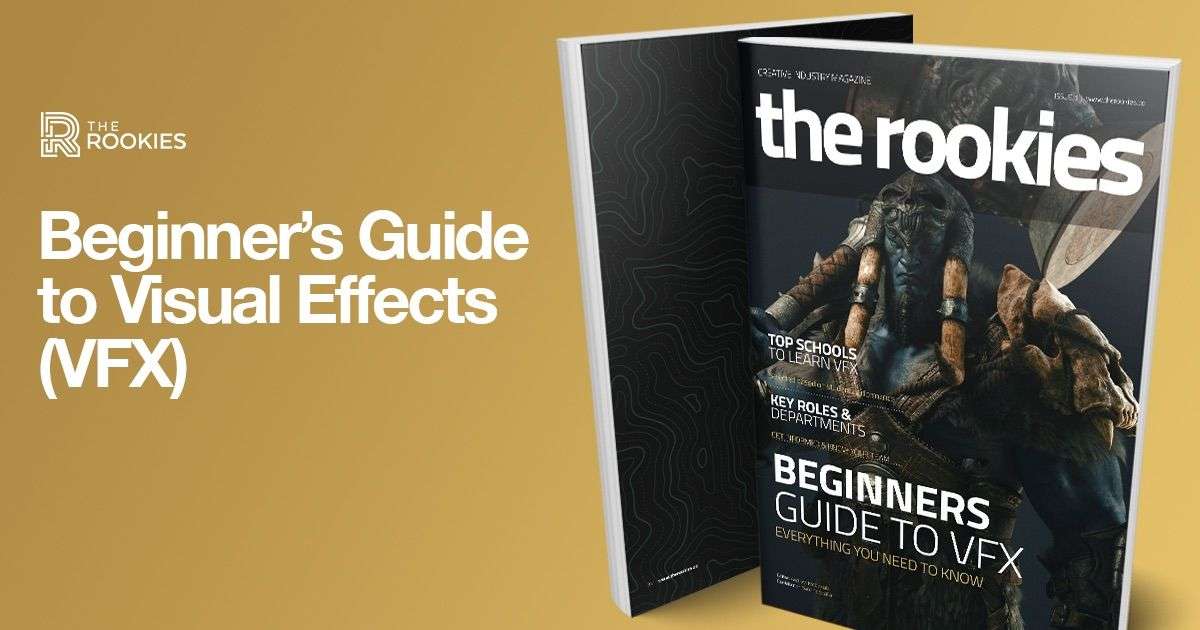
Edit September 2019: This article (and more!) can be downloaded as a free ebook. Follow this link to download your copy now.
At its core, Visual Effects (abbreviated VFX) is the process by which digital imagery is created to manipulate or enhance real world footage that has been filmed with a video camera.
Visual effects involve the integration of video camera footage and generated imagery to create environments which look realistic, but would be dangerous, expensive, impractical, time consuming or impossible to capture on film.
Visual Effects are not just limited to big block buster films, they are commonly seen in television commercials, broadcast series, architecture, advertising and more.
Maybe because it's a career that involves the perfect mix of story telling, cutting-edge technology and creativity. It could also be because you love films and want to hang out on set surrounded by movie stars. Maybe you want a career that allows you to travel the world or even work remotely from home. Or maybe it's because you love drawing and building things with your hands and on the computer. There are so many reasons why you would want to work in Visual Effects and there are dozen of possible career paths open to you across multiple industries.
The process of creating visual effects is long, challenging and very technical. Teams are large and very diverse which means there are opportunities for all types of people ranging from hardcore coders through to illustrators and non-artists who like managing teams. Everyone plays a crucial role in producing the final visual effects and I've listed some of the most common creative and technical roles below to help you understand where you mind fit it best.
The Art Department is responsible for translating a Directors vision and a script into visuals that can be shared with the entire team to truly understand the creative and technical challenges that lay ahead. These concept artists and illustrators create everything from storyboards to photorealistic artworks that show what the finished shot will look like.
#artistic #conceptart #illustration
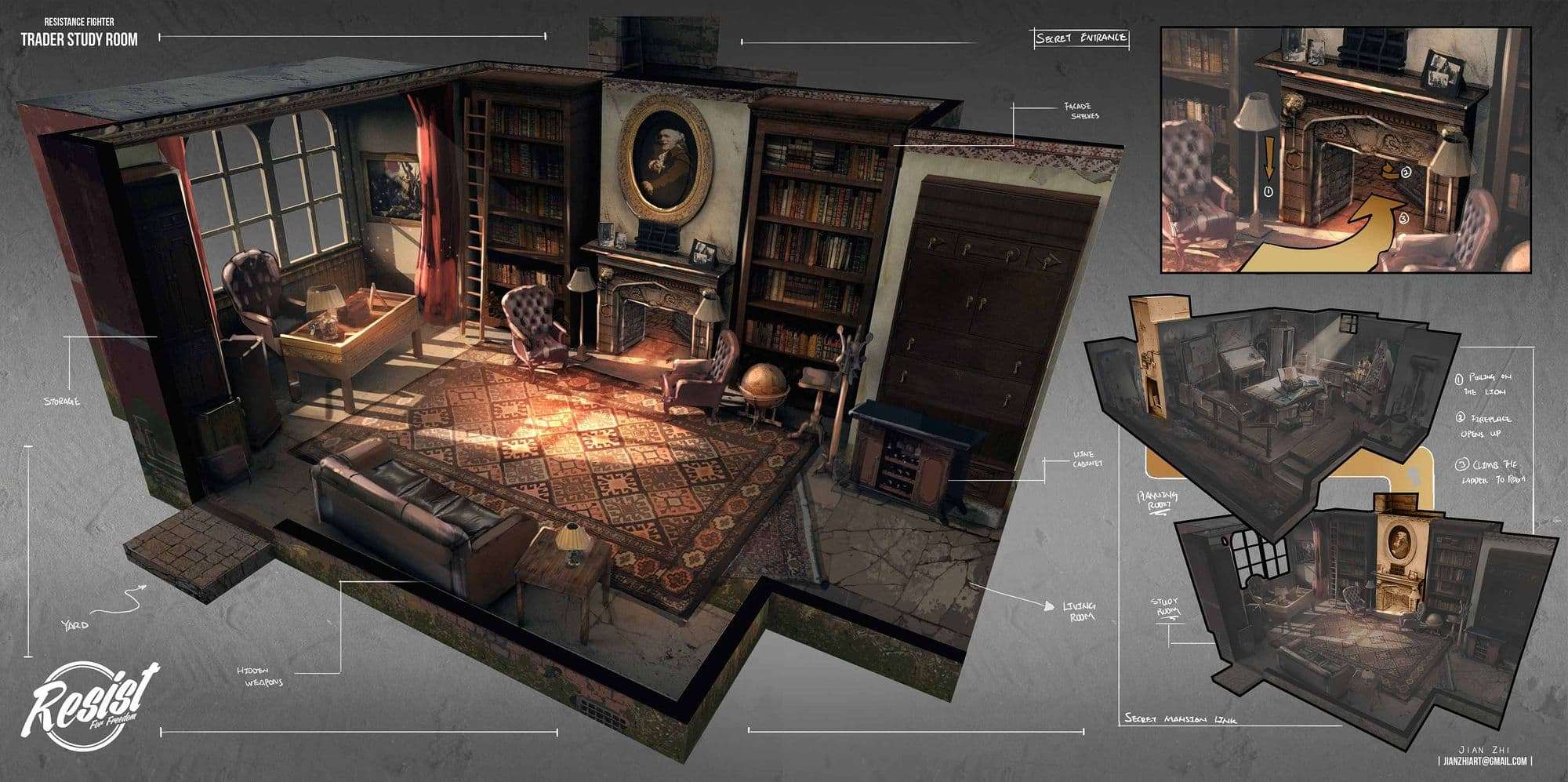
Pre-visualisation Artists are responsible for creating the first 3D representation of the final visual effects shot. They use artwork and basic 3D models to create normally low-quality versions of the action sequences so the Director can start planning out camera placement and creative/technical requirements.
#technical #planning #setup
Virtual assets are need in visual effects to match real world objects or create new objects that don't exist or are too expensive to build in the real world. These are mostly created by modeling artists, texture painters, shader developers and riggers.
#creative #artistic #design #3dmodel #shaders #rig


Considered a very technical department, RnD artists are responsible for building new software and tools to accomplish the tasks that can't be done, or are simply too time consuming for artists to manually complete over and over again. The role requires a very strong background in computer science and a passion for problem solving.
#technical #code #computerscience
This one is pretty obvious. Basically anything that moves on film needs to be animated. It doesn't matter if it's a small prop like a chair, a huge space ship or even a hero character or creature. If it moves and has a performance, an animator will most likely be behind the controls.
#actor #keyframes #characters #performance
This is also referred to as motion tracking and without it there would be no way to incorporate 3D data into live action footage. To make digital assets appear as if they completely real, you need a virtual camera that moves exactly like the camera in the live action footage. This is where matchmove artists come to the rescue. It's their job to use the live action video footage and create a virtual camera for all departments to work with.
#matchmove #virtualcamera
An FX Artist designs and creates FX animation, procedural simulation, dynamic simulation, and particle and fluid systems. They are responsible for recreating the behaviour of real world elements such as fire, water, explosions, cloth, hair and a whole lot more that most people don't even realise. Highly technical, yet creative role.
#fire #water #smoke #destruction
The lighting artist is responsible for applying all lighting effects to the digital scene. The artist takes into consideration the light sources of the live-action plate and applies virtual lighting to mimic the existing illumination within the environment. The goal is to ensure that the VFX and live-action elements blend seamlessly, as though both exist in the same environment.
#lighting #colour #illumination #mood
A matte painting is an image, created using digital or traditional painting techniques, to create a representation of a scene that would be impossible for filmmakers to deliver in real life. This might be because the landscape does not exist in the real world, it's not financially practical to travel to a location, or to extend the set outside of its filmed parameters.
#painter #mask #setextension
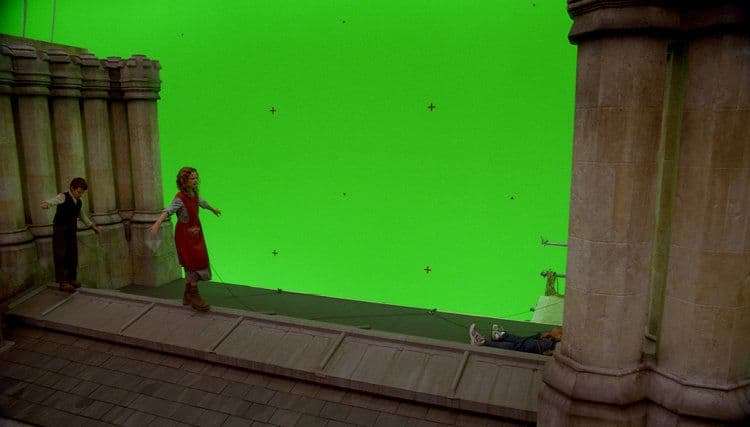

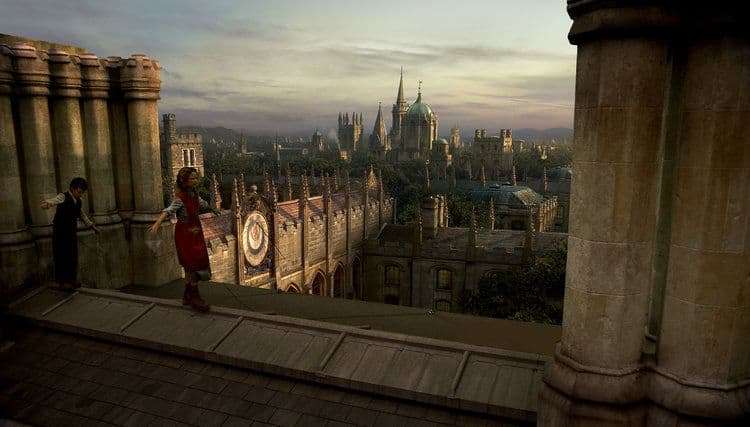
Rotoscoping is used to create a matte or mask for an element so it can be extracted out of place on a different background, masked out so colours can be changed or any other set of reasons. The rotoscoping artist will normally trace an object using a set of tools to create a new alpha channel for a specific part of an image sequence or video.
#mask #roto #trace #alpha
Compositing is the action of layering all the various elements in a shot – live action, mattes, multiple CG passes, 3D lighting, animation, particle effects – and blending them all seamlessly to create the photo-realistic final shot. Working throughout the production process, you’ll need to collaborate with other VFX departments to creatively and technically problem solve along the way.
#colour #grading #layering #finaltouch #composition

There are also a number of roles for people who prefer managing teams, budgets and schedules. The top production role at a studio is the VFX Producer who works closely with the VFX supervisor to project manage the entire process, defining the resources required, hiring artists and crew, managing budgets and making sure the project is delivered on schedule. Other common roles include Production Manager and Production coordinator which support the Producer by liaising with artists, flagging issues and generally tracking progress and making sure everything stays on track from a scheduling perspective.
#scheduling #management #budgets #glue
There are plenty of jobs available to people in the visual effects industry. For those of you interested in the more creative and technical roles there are definitely some important skills you should focus on early in your training.
The skills I'm referring to are not related to software and technology. Those will come later when you really start digging into your training. However, a solid foundation in the following skills will help you for years to come:
As in any industry there are exceptions to the rule, however the following should give you a good idea of the average salaries involved with different stages of your career. This information has been sourced from multiple government databases and various industry surveys.

* Currency Conversion completed April 2019.
Entry Level Artist
US: $22,000 - $52,000 | GBP: £17,000 - £40,000 | AUD $31,000 - $74,000
Senior Artist
US: $67,000 - $100,000 | GBP: £52,000 - £78,000 | AUD $95,000 - $143,000
Supervisors & Management
US: $100,000 - $136,000 | GBP: £78,000 - £104,000 | AUD $143,000 - $190,000
Traditionally speaking, there are two main ways to start learning Visual Effects. Go to a school, or teach yourself at home. It's very easy to find persuasive case studies for both learning paths so which should you choose?
In my opinion this depends entirely on you. Some people are great at learning skills themselves and don't need help for the heavy lifting part. On the other hand, there are people who need to be surrounded by others and need strict schedules and tasks. It really is up to you, and how you like to work.
Regardless of which approach to learning vfx you take, the most important thing to do is just start. It's that simple.
Regardless of which approach to learning you take, the most important thing to do is start. It's that simple. Pick up a book, start sketching, watch and analyse a movie, watch documentaries about visual effects, attend local events. Just get started. If you don't have the passion and motivation for this, then it doesn't matter how good your education - you will never make it.
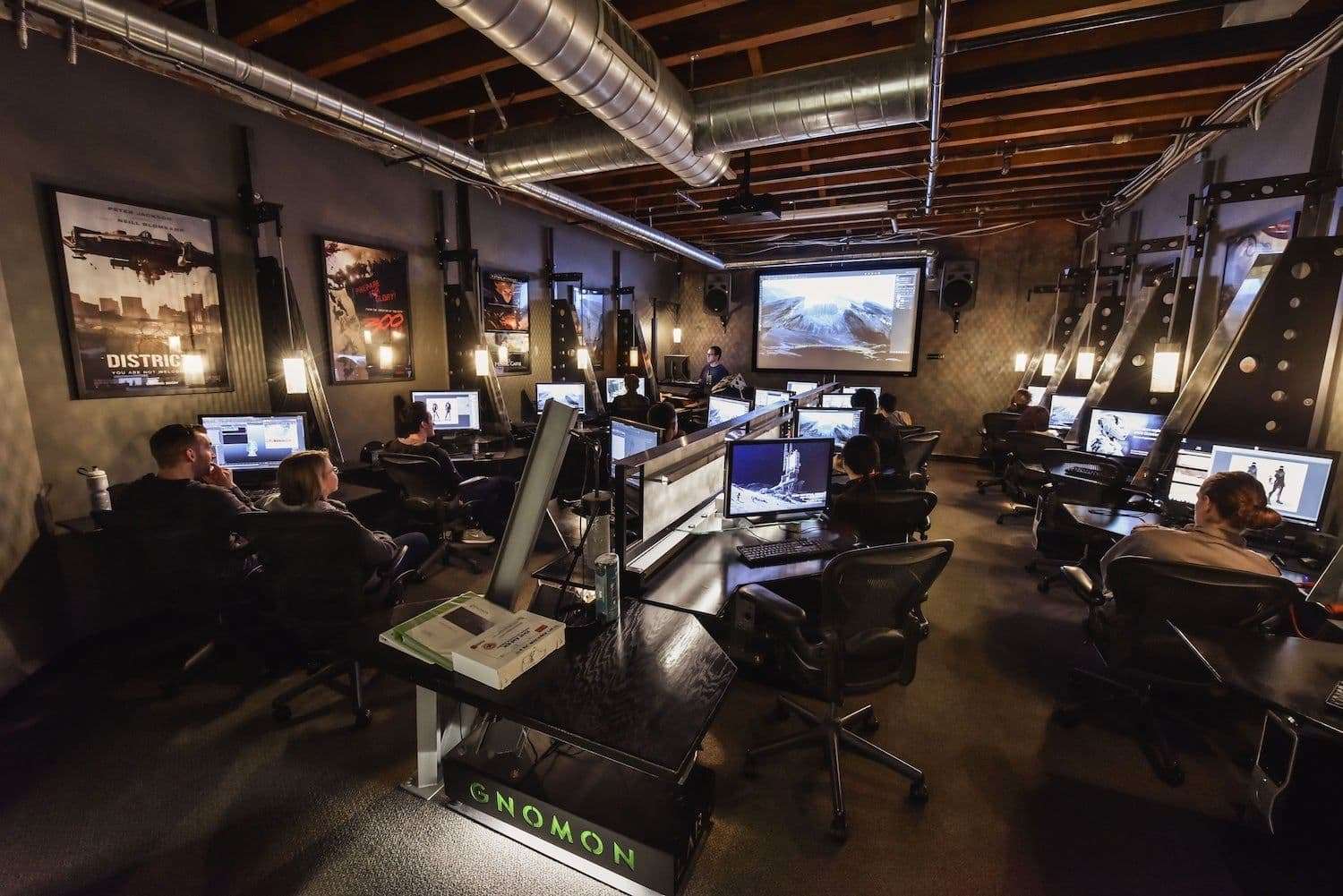
As mentioned, there are very strong debates for both sides of the learning process. Provided below is an overview of the most common advantages for both methods of learning.
Self taught Advantages:
University Advantages:
When looking for a school it's easy to get distracted by flashy advertising campaigns and glowing references from alumni. It's also a time when you could easily make a decision that you will regret because you didn't do your research. There truly are incredible schools out there, but there are also some that should not be allowed to teach at all.
Once you have narrowed down your list and you start talking with schools directly, here are a few questions to help you better understand which school is best for you.
What percentage of your teaching staff are working in the industry right now?
Be careful of schools that don't have any current or recent industry professionals. Many schools employ recent graduates that have little to no experience and just set you tasks, but are not able to help or relevant advice.
Who wrote your curriculum and what makes it better than other schools?
This will show you if they have strong internal educators or rely completely on external vendors to provide their training material.
How many of your students from last year have jobs?
This will help you understand how soon it takes for alumni to get a job and what percentage actually were employed.
Tip: Ask for names here if possible, then track them down on LinkedIn. Ask them directly if they would mind answering a few questions about their experience. Don't stalk people or be annoying. However, you will find that most people are super helpful and will share their thoughts openly.
What visual effects software will you teach me?
When you get this information, cross-check it against the list of recommended software here. Often schools will have contracts with certain companies which limits their access to industry approved software. Also make sure to ask if all their software is up-to-date.
What are the most common jobs people get after your course?
Make sure they are super specific with this one. Are graduates all working as Compositing Artists? Are graduates actually doing jobs that you want to do? Are graduates just working as Runners. This is a sure fire way to truly figure out what your employment chances are like after graduation.
Tip: Schools love to show all the films that their alumni have worked on. However, be careful with this one. Often they will use recent blockbuster films from alumni that attended 10+ years ago and were not the reason for the artists success.
Which studios do you have strong relationships?
Good schools will always work closely with leading studios. This means they will often have guest speakers, events and recruiters helping out to make sure the school is staying relevant and on track. Get the names of studios and do your own research, it will be pretty obvious.
What computer equipment and facilities do you get access to?
It's amazing how many schools don't even provide computers or even a working environment you'd want to spend time in. When studying visual effects, you are going to spend a lot of time at school, so make sure it's somewhere descent.
Wouldn't it be great if schools actually competed against each other to see who was the best school? This is exactly why the Rookie Awards was started back in 2010 and why their annual School of the Year rankings are so important to everyone.
The School of the Year rankings are based on the quality and performance of student work that is submitted to our judging panel each year for the Rookie Awards.
Most people feel that traditional school rankings that include peer and employer reviews, faculty to student ratio, citations and other data are not adequate when ranking the best creative schools. This might work for more traditional career paths, however when it comes to technical and creative such as Visual Effects which don't have standardised testing.
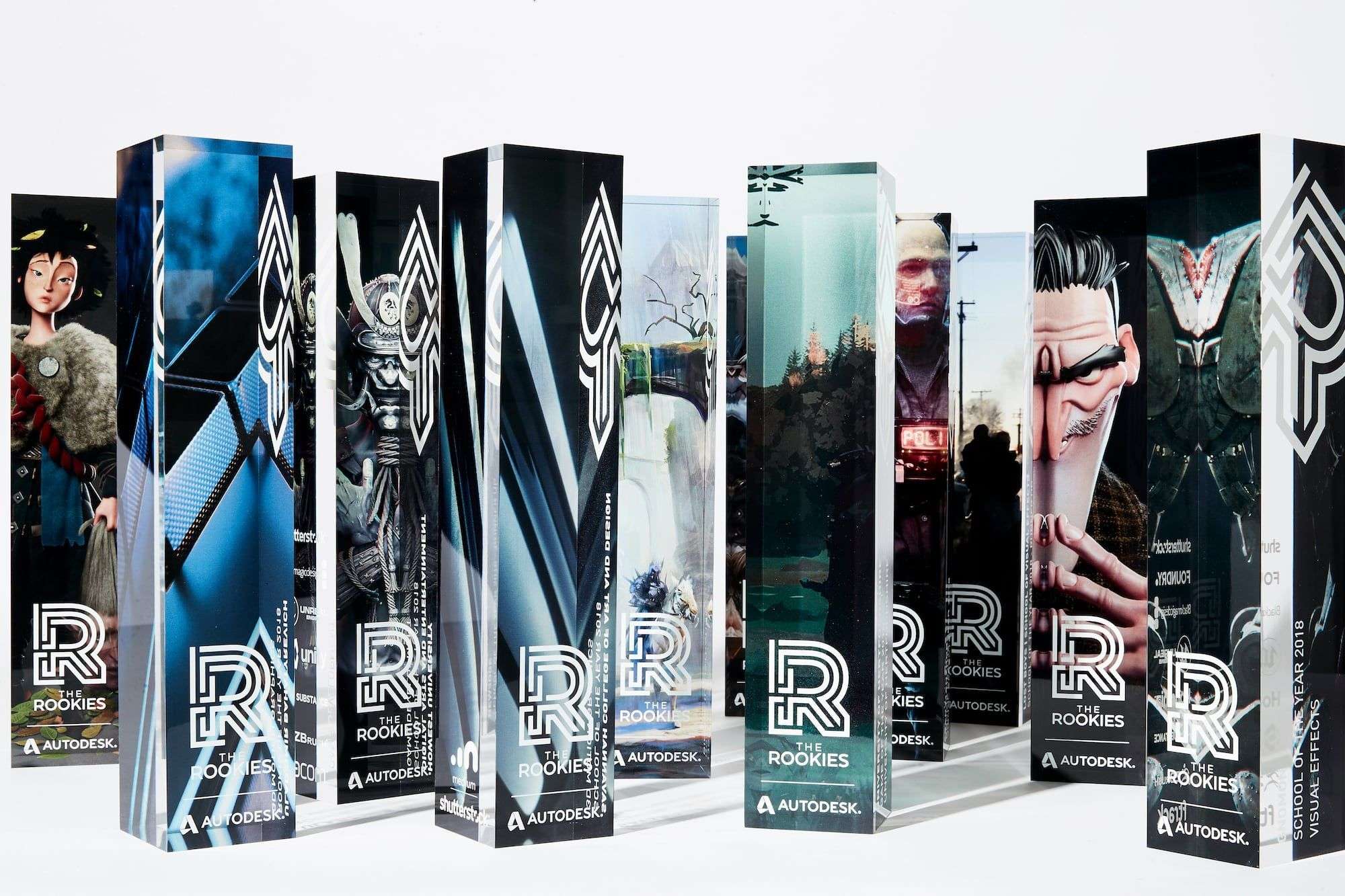
The Rookie Awards are the most important student award and ranking globally as it has a credibility that others just don’t have. It doesn’t let advertising budgets create higher school rankings, it uses industry to assess and judge student work and discounts for any school flooding the awards with entries.
Darryn Melrose, former Chief Executive of Media Design School
The official rankings for 2020 have been calculated based on the performance of students work submitted to our industry panel. Full details can be found further down the page about how we calculate and rank schools.
 Discover | The RookiesAndrew McDonald
Discover | The RookiesAndrew McDonald
For those of you wanting to get started in visual effects without leaving your home, there are a bunch of great place to start learning online right now. Here are a few very reputable art schools to get you started on the right path.
They offer online courses taught by top film and game artists.What better way to break into the film and games industry than to be personally trained by those who have worked on your favourite movies or video games?
At Pluralsight, we believe everyone should have the opportunity to create progress through technology and develop the skills of tomorrow. With assessments, learning paths and courses authored by industry experts, our platform helps businesses and individuals benchmark expertise across roles, speed up release cycles and build reliable, secure products.
Since 1997, Gnomon has been educating many of the world’s best digital artists. The school in Hollywood, California, offers a variety of educational options to help students reach their goals in the entertainment industry, with a BFA degree in Digital Production, full-time vocational programs, specialised courses for high school students, and over 100 individual courses for professional enrichment.
CGMA was created for everyone: from 2D and 3D artists looking to supplement their college studies to industry professionals looking to stay up to date on emerging trends and techniques in the field. CGMA offers a wealth of creative opportunities for artists of all types and all levels.
Founded in 2005, Think Tank Training Centre specializes in the latest software, techniques and technologies that cater to the needs of the film, television and video game industries. Think Tank boasts 92% job placement in the CG Industry. In 2016 it was ranked #3 in the world for Illustration, and in 2015 it was ranked the #1 school in Canada and #3 in the world for film, TV and game production at the Rookie Awards).
In 2005, Animation Mentor was the first to offer a world-class animation education online. Today, more than ever, you can count on that same great experience with our proven mentorship educational model, a global campus that’s always on, thousands of hours of educational content, and our commitment to providing you with the most personal and fulfilling learning experience on the planet … all designed to help you — the filmmaker — reach your full creative potential.
I constantly get asked for recommendations about the best schools to attend and what studios can be found in your local area which is why I created a platform to help you find the perfect school to learn visual effects.
Our schools are split into two categories: Certified Schools and Standard Schools.
All schools in the directory have to pass a solid level of competencies to be included, but Certified Schools are obviously the smarter choice as these schools have passed a formal accreditation that is designed to showcase and acknowledge the very best schools that provide the most up-to-date and relevant industry training and education. The accreditation also helps you identify the world's most industry focused schools that are nurturing talent of all skill levels.
 Discover | The RookiesKeisha Wright | Gnomon Student 2020
Discover | The RookiesKeisha Wright | Gnomon Student 2020
 Discover | The RookiesKeisha Wright | Gnomon Student 2020
Discover | The RookiesKeisha Wright | Gnomon Student 2020
Starting out in Visual Effects can be pretty daunting, but the good news is that the community is super friendly and supportive. We are all super passionate about our little industry and we've all been in your position so we know what it feels like. This is just a small snapshot of the essential communities and blogs for VFX Artists that you should participate in.
The Rookies is a platform to help digital artists get discovered without having to compete with professionals for attention. The Rookies has been around for over 10 years and really is the best place for newbies to start. (I might be a bit biased with this one!)
At The Art Society, we inspire, empower, and engage artists everywhere. Whether helping you become a better artist, informing you of the latest happenings in the global art community, or empowering you with the knowledge and tools you will need to land your next job, The Art Society is here to inspire, inform, educate, and recruit.
ArtStation provides you with a simple, yet powerful way to show your portfolio and be seen by the right people in the industry. It's super fast and sleek. Showcase images, videos, Marmoset and Sketchfab 3D scenes, 360 panos and more. Add your work and production experience.
The Animation World Network is the largest animation-related publishing group on the Internet, providing readers from over 151 countries with a wide range of interesting, relevant and helpful information pertaining to all aspects of animation.
Everyone knows reddit as the front page of the internet. They have something for everyone and VFX is no exception. There are great topics and discussions about everything to do with the industry and plenty of people willing to help.
These days there are plenty of free software licenses out there for you to play with. Most software companies offer educational licenses for their professional suite of tools, but nothing beats free. These are by far the best tools you can start with today without waiting.
DaVinci Resolve 16 is the world’s only solution that combines professional 8K editing, color correction, visual effects and audio post production all in one software tool! You can instantly move between editing, color, effects, and audio with a single click. DaVinci Resolve Studio is also the only solution designed for multi user collaboration so editors, assistants, colorists, VFX artists and sound designers can all work live on the same project at the same time!
Houdini Apprentice is a free version of Houdini FX which can be used by students, artists and hobbyists to create personal non-commercial projects. With Houdini Apprentice, you have access to virtually all of the features of the award-winning Houdini FX to develop your skills and work on personal projects. Apprentice lets you save to disk and render out with a word mark.
With Nuke Non-commercial, you get access to free, non-watermarked versions of Nuke, NukeX and even top-of-the-line Nuke Studio for as long as you like, so you can learn, explore and have fun on your own schedule. If you want to learn to composite, edit and finish with industry-leading tools used on blockbuster movies, Nuke Non-commercial is what you’ve been waiting for. You can work on personal projects, update your skills, experiment, research or just play around.
The following software is predominantly used by professional studios doing high profile work and you will be in a great position if you start with any of these products.
One thing to remember is that the software doesn't make the artist. Regardless of what tool you start with, you just need to start. Moving from one software to another is easy, but starting is the hard part. Sticking with it is even harder.
ZBrush sets the industry standard for digital sculpting. Its features enable you to use customizable brushes to shape, texture and paint virtual clay in a real-time environment. When you use ZBrush, you'll be working with the same tools used by film studios, game developers, toy/collectible makers, jewelry designers, automotive/aviation designers, illustrators and artists worldwide.
If you can think it, you can make it with Photoshop, the world’s best imaging and graphic design software. Create and enhance photographs, illustrations, and 3D artwork. Design websites and mobile apps. Edit videos, simulate real-life paintings, and more. It’s everything you need to make any idea real.
Visual effects artists are always in high demand. Films and not slowing down, Netflix is not going anywhere and advertising agencies are always trying to push the barriers of the advertising campaigns. There is also a growing need for visual effects artists in architecture firms, product design studios and tech startups. Here is just a small taste of some the bigs names that you could have on your resume.
Industrial Light & Magic started a revolution in the world of filmmaking with the release of Star Wars in 1977. Since then, the ILM name has become synonymous with groundbreaking visual effects work and the company continues to be a recognized leader in the field. We continue to provide filmmakers with the ability to tell stories in ways not previously possible, allowing only their imagination to limit what can be achieved.
Pixar Animation Studios, a wholly owned subsidiary of The Walt Disney Company, is an Academy Award®-winning film studio with world-renowned technical, creative and production capabilities in the art of computer animation. The Northern California studio has created some of the most successful and beloved animated films of all time.
Weta Digital is one of the world’s premier visual effects companies. Led by Senior Visual Effects Supervisor Joe Letteri, Weta Digital is known for its culture of creativity and innovation. From Gollum to Caesar, Middle-earth to Pandora, the studio has created some of the most memorable characters and worlds of the last twenty years.
We are one of the world’s leading visual effects, animation and stereo conversion companies for feature film and television, with studios in London, Vancouver, Mumbai, Los Angeles, Chennai, Montréal, Chandigarh, Hyderabad and Goa. Since the opening of our first studio in London in 1998 we’ve always focused on building close working relationships with filmmakers. We thrive on collaboration and the creative energy this provides, and we are dedicated to delivering excellence on every project we are involved with.
Framestore is home to a collective of visionaries working across film, advertising, and content. Our work and skillset are wide-ranging, thanks to a pool of 2400 talented artists and producers in offices across the globe. Framestore has grasped the opportunities afforded by new technologies and works with brands, studios, artists, and organizations to bring immersive experiences to both new and existing audiences.
Cinesite is an independently-owned digital entertainment studio with a broad transmedia expertise. We are a talented, international team of people who design and deliver fun, entertaining, and innovative digital images with a proven creative approach. Over the following two decades our London studios created visual effects for over 200 feature films and television productions, from Space Jam back in 1996 through to several Bond films and every film in the Harry Potter franchise.
Founded in 1991 and driven by a simple philosophy – ‘to create GREAT WORK with GREAT PEOPLE’, Animal Logic is recognized as one of the world’s leading independent creative digital studios, producing award-winning design, visual effects, and animation for over 25 years. With teams in Sydney, Los Angeles, and Vancouver, Animal Logic has never wavered from its core mission and to captivate audiences across the globe, producing great screen content with our incredible creative partners.
We provide a broad range of in house creative and production solutions including concept design, pre-viz, shoot supervision, 2D compositing, 3D/CG effects, animation, motion design, software development, mixed reality and experiential production, live action production and colour grading.
There are plenty of amazing books out there that will provide you with knowledge to help you improve as a visual effects artist. So take a step away from the computer, grab one of these books and be inspired.
Industrial Light & Magic: The Art of Innovation is an extensively illustrated oral history of the multiple-Academy-Award®-winning visual effects company founded by George Lucas in 1975. Its tale begins with a small team of craftspeople, engineers, and artists who pioneered analog effects that had never before been attempted or realized on the screen for Star Wars.
Ed Hooks' essential acting guidebook for animators has been fully revised and updated in this 4th edition. Hooks uses classical acting theory – from Aristotle to Stanislavsky and beyond – to explain everything from character analysis and physical movement to facial expression and scene structure. He speaks directly to animators, instead of stage or screen actors. Acting for Animators is an invaluable primer for beginner animators and a useful reference for experienced pros.
Matchmoving is a practical skill that can help digital artists get a foot in the studio door. Now you can learn the professional techniques required with this essential guide. Author Tim Dobbert, a veteran in the visual effects industry, has worked on such movies as Avatar and Harry Potter and the Goblet of Fire, and he passes along years of valuable studio expertise in this fully updated industry standard. You'll quickly start acquiring such technical skills as 2D tracking, 3D calibration, object tracking, what to do on a live-action set, and much more.
Occasional supervisor in the visual effects and animation world. One of the founding employees of Sony Pictures Imageworks. Part of the initial design and development team that produced the digital compositing application Shake (acquired by Apple in 2002). Continued as Shake Product Designer for a few years, until development on the product was ruthlessly terminated.
The award-winning VES Handbook of Visual Effects remains the most complete guide to visual effects techniques and best practices available today. This new edition has been updated to include the latest, industry-standard techniques, technologies, and workflows that are ever-evolving in the fast paced world of visual effects.
Through interviews with 16 of the leading FX pioneers from around the world, author Ian Failes explores the making of some of the most memorable film sequences ever produced, showcasing the shift from practical to digital magic with original behind-the-scenes imagery, shot breakdowns, and detailed explanations of some of the secrets behind the making of cinema's most extraordinary creations.
This unique book reveals a variety of tools and techniques that are both industry and classroom tested and will enhance your existing skill set. Veteran author and instructor David Mattingly walks you through the process of creating a matte painting, starting with rough concept sketches, working out the perspective drawing, adding light and shadow, and texturing all of the elements in the painting.
Anatomy for 3D Artists is an essential teaching guide for sculpting human anatomy. Non-software specific, it is packed with everything today's 3D artist needs to know to tackle the difficult task of recreating the human form in 3D. Starting with 2D references, and moving on to practical and advanced 3D sculpting—including topology and animation preparation—every stage in the creation of an ideal male and female figure is covered.
The Filmmaker’s Guide to Visual Effects offers a practical, detailed guide to visual effects for non-VFX specialists working in film and television. In contemporary filmmaking and television production, visual effects are used extensively in a wide variety of genres and formats to contribute to visual storytelling, help deal with production limitations, and reduce budget costs.
Don't worry, you are not the only one. Becoming a visual effects artist takes a lot of effort and time, but it's totally worth it. One of the biggest challenges faced by aspiring visual effects artists is deciding on where to study. There are loads of great schools out there, online training resources and impressive workshops available. The problem is, most of them require a solid financial investment and making the wrong choice can completely destroy your chances.
This is why The Rookies has partnered with Mozaik Play - a student placement organization - that can assist you with: Choosing the right digital media colleges and course, full application process support, Visa application assistance and also financial payment advice. They can even help prepare your art school portfolio to make sure you get accepted with ease!
The best part is that all these services are FREE of charge - Mozaik Play are funded by colleges that have entrusted them to match the right student with the right course.
Get your free consultationIf you have read this far, then it's clear that you care, but it also means that you are probably still a bit confused by all this and just want to make sure the right decisions are made. The Visual Effects industry is relatively new and there are so many avenues into this industry crossing creative and technical skills, so it's a lot to take in but here are some key points you should remember:
I hope this has given you a good overview of the Visual Effects industry and the career prospects available to you. It's really up to you now, you need to put in the hard work. You need to take the next step using the advice provided in this guide.
So do yourself a favour, grab the following list and start working though it. One step at a time. That's all it takes.
Thanks for reading this guide. I plan to keep updating this often to make sure it remains relevant and helpful. Please reach out to me via the comments section with any suggestions or questions.